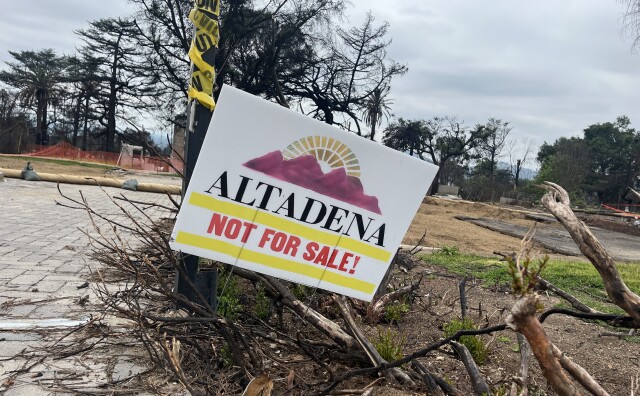With our free press under threat and federal funding for public media gone, your support matters more than ever. Help keep the LAist newsroom strong, become a monthly member or increase your support today.
This archival content was written, edited, and published prior to LAist's acquisition by its current owner, Southern California Public Radio ("SCPR"). Content, such as language choice and subject matter, in archival articles therefore may not align with SCPR's current editorial standards. To learn more about those standards and why we make this distinction, please click here.
No More Fee Hikes for UC, CSU Students...Yet
By Nick Wilson/Special to LAist
UC Chancellor Mark Yudof and CSU Chancellor Charles Reed announced Monday that they will not seek further tuition hikes this year, instead trimming enrollment and services to meet $1.4 billion in proposed cuts. The leaders warned, however, that if voters don’t approve Gov. Jerry Brown’s tax extensions in June, more cuts and fee hikes may be necessary.
“[Gov. Brown] already told Mark and I straight up: If this doesn't pass we're going to come back and cut you some more. We can't afford to take any more cuts,” Reed told reports Monday. “You have to pay for what you get.”
Governor Jerry Brown’s proposed budget includes a $500 million reduction for the UC system, another $500 million for CSU, and a $400 million cut for community colleges. Joining Yudof and Reed at the press conference was community colleges Chancellor Jack Scott, who was the only leader willing to endorse the tax extensions on Monday.
Brown has called on community colleges to raise fees to $36 a credit, up from $26. The UC system has already raised fees over 40% over the last two years. Preliminary figures presented by Yudof calls for reductions at all of the UC schools, including $70 million at UC Davis, $80.8 million at UC Berkeley, and $96 million at UCLA.
Reed expects CSU to reduce enrollment by 10,000 students next fall, but hopes to avoid further tuition increases. “We raised tuition 10 percent in November and I don't plan on doing it again except if in June the revenue enhancements that the governor is proposing fail and the whole bottom falls out of everything, we'll have to come back and revisit that.”
Yudoff warned Monday, "What scares me is the $500 million proposed reduction could be the best case scenario. We don't know what's on the ballot or how voters will react. Cuts could be much deeper than that."
At LAist, we believe in journalism without censorship and the right of a free press to speak truth to those in power. Our hard-hitting watchdog reporting on local government, climate, and the ongoing housing and homelessness crisis is trustworthy, independent and freely accessible to everyone thanks to the support of readers like you.
But the game has changed: Congress voted to eliminate funding for public media across the country. Here at LAist that means a loss of $1.7 million in our budget every year. We want to assure you that despite growing threats to free press and free speech, LAist will remain a voice you know and trust. Speaking frankly, the amount of reader support we receive will help determine how strong of a newsroom we are going forward to cover the important news in our community.
We’re asking you to stand up for independent reporting that will not be silenced. With more individuals like you supporting this public service, we can continue to provide essential coverage for Southern Californians that you can’t find anywhere else. Become a monthly member today to help sustain this mission.
Thank you for your generous support and belief in the value of independent news.

-
The Palisades Fire erupted on Jan. 7 and went on to kill 12 people and destroy more than 6,800 homes and buildings.
-
People moving to Los Angeles are regularly baffled by the region’s refrigerator-less apartments. They’ll soon be a thing of the past.
-
Experts say students shouldn't readily forgo federal aid. But a California-only program may be a good alternative in some cases.
-
Distrito Catorce’s Guillermo Piñon says the team no longer reflects his community. A new mural will honor local leaders instead.
-
The program is for customers in communities that may not be able to afford turf removal or water-saving upgrades.
-
More than half of sales through September have been to corporate developers. Grassroots community efforts continue to work to combat the trend.







